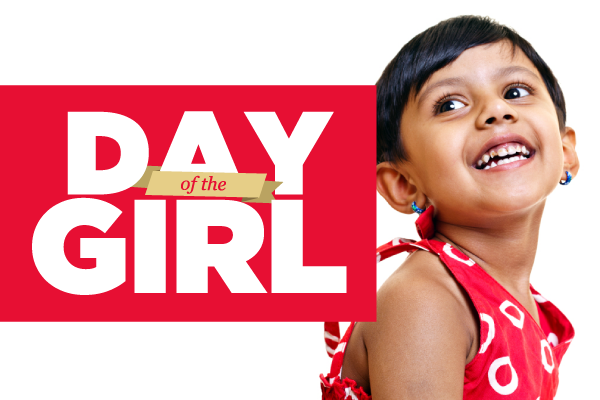
Today is the International Day of the Girl. It’s a chance to reflect on how many battles women have won in the name of equality and fairness. It can’t be understated how many more opportunities girls today have compared to generations ago.
But the fight isn’t over. Today, at the Union of National Employees, we’d like to spark a discussion about stereotypes. Don’t be shy; use the comment box below or go to our Facebook page to join the conversation.
On this Day of the Girl, we ask: do stereotypes still affect girls’ choices when it comes to career opportunities?
There’s a common stereotype about boys being better at math and science, girls being better at reading and writing. Does the theory have any basis in truth?
The last report (2010) from the Pan-Canadian Assessment Program revealed the following:
- In math, there was no significant difference in the performance of girls and boys at the national level. However, more boys than girls were able to demonstrate high- level math knowledge and skill proficiency.
- For Canada as a whole, girls performed better than boys in both science and reading. More variation was seen at the provincial and territorial level. [1]
So the lines are muddled a bit. However, consider that, as of 2009, Statistics Canada reported that only 3% of women had an occupation in the natural sciences and engineering, versus 10.5% for men. [2]
Could stereotypes affect girls’ performance and attitude towards math and science? Psychologists at the University of Massachusetts were equally curious about this question.
The psychologists asked female students studying biology, chemistry, and engineering to take a very tough math test. All the students were greeted by a senior math major who wore a T-shirt displaying Einstein’s E=mc2 equation. For some volunteers, the math major was male. For others, the math major was female. This tiny tweak made a difference: Women attempted more questions on the tough math test when they were greeted by a female math major rather than a male math major. On psychological tests that measured their unconscious attitudes toward math, the female students showed a stronger self-identification with math when the math major who had greeted them was female. When they were greeted by the male math major, women had significantly higher negative attitudes toward math. [3]
It’s an interesting result, especially when you consider that in the academic sector, women make up 19% of full-time faculty in the natural sciences and engineering. [4]
Finally, there’s another battle going on when it comes to stereotypes: an internal one. Psychologists at La Trobe University in Melbourne, Australia, discovered that when we perceive someone as holding a particular gender stereotype, it affects how competent we sound. The theory is that your brain is so busy monitoring how you come across – because you’re so concerned about the perceived stereotype – that you end up sounding incompetent. [5]
When it comes to math and science, it’s important to recognize that girls are still battling stereotypes. It’s an important issue because stereotypes are the last thing that should bar girls from a career in a field they find fulfilling.
There’s still a lot of work to be done to bust the doors of opportunity wide open.
[1] The Council of Ministers of Education, Canada
[2] Natural Sciences and Engineering Research Council of Canada
[3] Slate Magazine
[4] Natural Sciences and Engineering Research Council of Canada